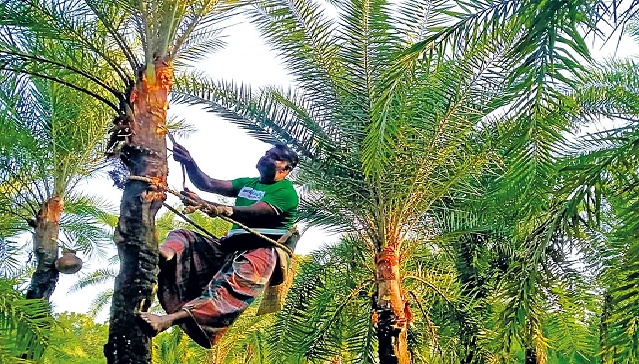
F-comm.: a saviour amid pandemic woes

Kaniz Fatema was devastated when her husband lost his job in March because of the pandemic, which prompted a countrywide lockdown and compelled every industry to go for a massive layoff.
She was overwhelmed with some questions: "How can I get money to meet family expenses? How do I pay the rent? How will I manage my expenses for my four-year-old daughter?"
In late March, she came across the Women and e-Commerce Forum (WE), a Facebook page where women with different skills can post their products or services for sale.
There she posted pictures of kachchi biryani, a dish popular throughout the Indian subcontinent comprising meat layered with rice and a yoghurt-based marinade at the bottom.
"I had an F-commerce site created in November 2018 to sell homemade food, but it was unsuccessful. But in the middle of the pandemic when I posted the pictures of my items on the WE mentioning the name of my page, the orders started pouring in," said Fatema.
In the last few months, through her F-commerce site Fawjia's Food, she has been receiving more than 25 orders per day.
"On top of losing his job, my husband got sick. Besides, managing expenses of the family, now I am spending money minted from the business for the treatment of my husband," she said.
For the absence of logistic support, which is a major impediment for women who come to this business, she sometimes had to take a CNG-run auto-rickshaw or simply a rickshaw to make the deliveries herself.
F-commerce has been thriving in the last few years in Bangladesh thanks to the huge size of the Facebook audience, which has now reached nearly 40 million, placing Bangladesh among the top 10 Facebook-freak nations, according to experts.
With the option of boosting sales by paying Facebook, which automates the paid user's ads to show products that are tailored to each person's interests, many youths, especially women entrepreneurs, started selling goods or services using the world's largest social media platform.
But at the onset of the pandemic, many such entities were closed because of the lockdown that put in place movement restrictions, making the platforms unable to deliver the products.
Another major reason was the closure of air routes that almost stopped the supply as most F-commerce platforms sell imported products such as cosmetics, skin products, clothes, shoes, watches, luxury items and tech gadgets.
However, amid the adversary, there was a boom in the opening of new f-commerce businesses as people lost their jobs and ventured into this business using skills and innovation focusing on selling homemade food items, organic vegetables and fish, medicine, etc.
"At this crisis moment, women have come forward and started businesses using Facebook. They have taken up the helm of running the family by helping to overcome financial difficulties brought on by the pandemic. They are selling a lot of products with their skills, labour and talent," said Nasima Akter Nisha, president of the WE.
The WE opened its Facebook page a few years back, and only 30,000 people liked the page until March. But, since March, it garnered a massive one million new members, helping hundreds of women sell their products.
"Many women are not only becoming self-reliant through this but also taking the country forward," Nisha added.
Wholesale Mall BD, an F-commerce site with 1.07 lakh likes and a focus on selling cosmetics and skincare products, witnessed a surge during the lockdown as many people went online as brick-and-mortar shops were shut.
Although many online-based entities were forced to shut their business because of inadequate supplies from abroad, Abu Ishahaq Khan, the owner, ensured the supply of the products from top importers.
"Before the pandemic, I used to get more than 60 orders on an average per day. During the lockdown it almost doubled," he added.
Currently, Wholesale Mall BD makes 70 to 80 deliveries to its customers per day, according to Khan, who founded the site little over one year ago.
"The most important thing in this business is gaining the trust of the customers," he said.
"For that, keeping promises, handing over the right products, delivering products on time, and focusing on overall customer satisfaction - these are the key issues," Khan added.
The sales in Market Bangla, a site that focuses on agro-products with an audience of 3 lakh in Facebook, got turbocharged during March to July as people opted for healthy food to keep them fit amid the pandemic.
Before the pandemic, it used to receive around 80 to 90 orders per day, which went past 350 during the period.
Demand for river fish, haor fish, hilsa fish, organic dry fish, meat, organic foods, herbal products for health and beauty, dry fruits, fresh fruits, special spices, pickles, vegetables from hill t
Editor & Publisher: S. M. Mesbah Uddin
Published by the Editor from House-45,
Road-3, Section-12, Pallabi, Mirpur
Dhaka-1216, Bangladesh
Call: +01713180024 & 0167 538 3357
News & Commercial Office :
Phone: 096 9612 7234 & 096 1175 5298
e-mail: financialpostbd@gmail.com
HAC & Marketing (Advertisement)
Call: 01616 521 297
e-mail: tdfpad@gmail.com